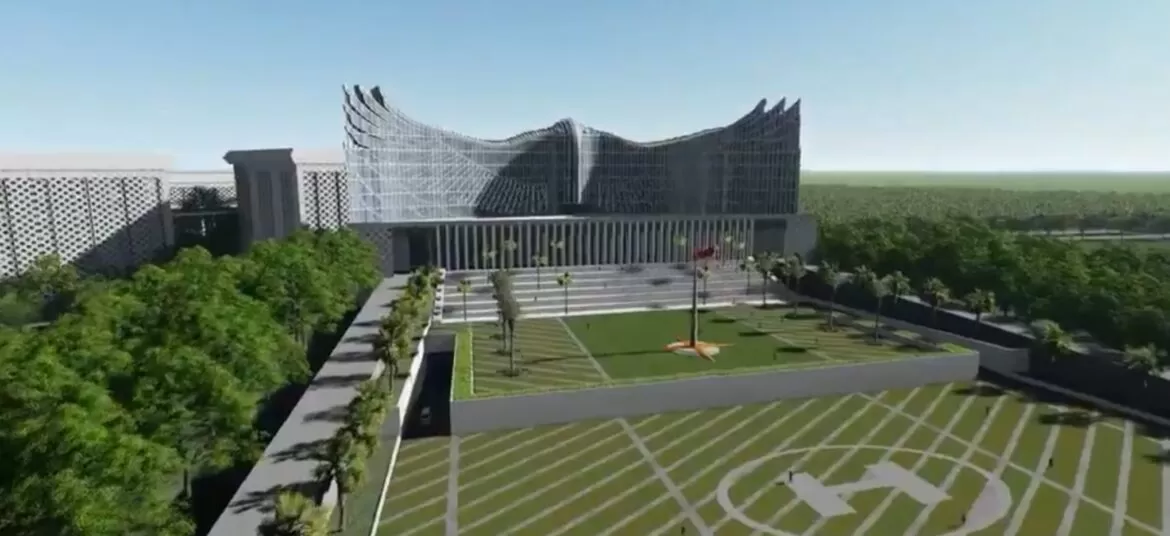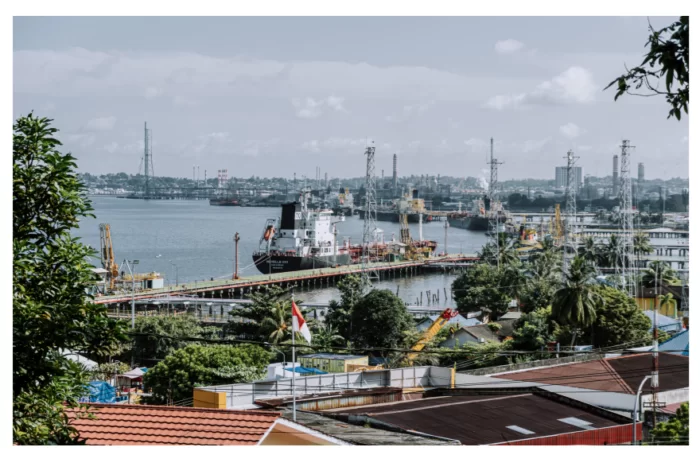
A year after the pandemic, President Jokowi in April 2021 announced on Twitter, the design vision for the Presidential Palace – “Istana President” in the new capital through an animated video. The video shows that touchstone infrastructure for a modern and green Indonesia. “One of the pre-design proposals for an iconic building in the new national capital is the State Palace by Nyoman Nuarta. I look forward to your input on all of the predesigns. I hope that the State Palace will become the pride of the nation, as well as reflect the progress of the nation.” he said.
After setting out on the plan towards the new capital in 2019, the progress was been semi-halted by the pandemic. It is said to be “semi-halted” because the government is keeping the momentum going through discussions. Moving fast on decisions after an economic shock can be the crucial for developing markets such as Indonesia as it reflects the country’s prowess to emerge out of such shocks. Thus, supporting activities are to be continued in order for the country to be ready post-pandemic.
Why Kalimantan?
In the past, the capital city of Indonesia has been moved several times, starting from Jakarta, Yogyakarta, Bukittinggi, back to Yogyakarta and finally back to Jakarta again. The movement of the capital city was then due to the post-colonial urgencies after gaining independence from Netherlands on August 17th, 1945. Despite so many years the island still remains the favourite place to move. The East Kalimantan islands is significantly safer than others in term of earthquakes and volcanoes and there is availability of vast land area too. With a sinking Jakarta – not only because of rising sea-level but also over-consumption of groundwater, this shift may be the need of the hour.
Saving Jakarta
The overpopulation in Jakarta which leads to environmental deterioration related to flooding, subsidence, river pollution, clean water scarcity and overcrowded traffic drove the urgency of capital relocation. The relocation is hoped to ease Jakarta’s congestion problem which is caused by almost 21 million motor vehicles on the road. Jakarta’s congestion is also caused by the lack of public transportation, where 75% of daily trips in Jakarta happen through private transport. Indonesia has constantly ranked in the top ten most congested cities in the world by TomTom Traffic index until 2019, and only dropped from top ten of that list ever since the pandemic started. The country faces economic losses of more than IDR 65 trillion per year just from Jakarta’s traffic condition.

Source: Flooding in Jakarta, Flickr/Bungasirait
Development gap between the cities in Java Island compared to the cities in Eastern Indonesia is too wide. Like any commercial and governance hub, Jakarta sucks in most of the investments coming in – both from inside the country and outside. Planning for accommodating incoming investments is a secondary thought in many developing nations and this leaves over-developed metros unable to keep up with the global pace of development.
Smart Metropolis
The capital relocation plan is incorporated into the strategic plan to accelerate Eastern Indonesia’s development, meaning multiple long-term investments will flow in. The developments will shift to Kalimantan, Sulawesi, Nusa Tenggara, Maluku and Papua. Indonesia’s maritime transport will also take place, especially in terms of freight transport, domestically and internationally. The new capital will allow Indonesia to make way for futuristic urban planning for a smart city, a “smart metropolis” as President Jokowi refers it as. The East Kalimantan city will house about 7 million people. The capital is envisioned to be clean and green, and perhaps even borrow from traditional knowledge of the indigenous Dayak tribe to preserve the abundant natural resources available in the region.
New capital city planning committee is also inclusive of Former British Prime Minister Tony Blair, founder and CEO of Japanese holding company SoftBank, Masayoshi Son, and the crown prince of Abu Dhabi, Sheikh Mohammed bin Zayed Al Nahyan. In March 2020, international engineering company AECOM, international consulting firm McKinsey & Company, and Japanese architecture and engineering firm Nikken Sekkei were chosen for a development of a 988-square-mile property.
Locational advantage
The new capital is not planned to be a commercial capital like Jakarta, instead it has been thought of a destination to move governance and administration into. With this, the attention may shift from the Javanese islands to the less developed eastern Indonesia. With a growing middle class and higher education levels, the demand for a more equitable development will be shriller.
The new capital will be under UTC+8 time zone and this may attract the companies that deals with nearby economies such as Singapore, Malaysia, the Philippines, China; and possibly extending to those dealing with South Korea and Japan. This can bring the country closer to more trade, better business and sound geo-political strategies with Asian economies. The planned new capital is close to Balikpapan, the financial center and port city of Kalimantan which is famous for its oil industry; and Samarinda, the capital city of East Kalimantan Province![]()

Source: Balikpapan post/ Shutterstock![]()
Bottlenecks
This plan is faced by challenges that came in form of funding and the ongoing pandemic. COVID-19 currently halts the physical development of the new capital; however, the Government has mentioned that the supporting development will still continue, together with the masterplans of the two supporting cities, the economic center Balikpapan and East Kalimantan capital Samarinda.
While the new capital is targeted to be useable in another two years – by 2024, it may take longer given the current pace of progress. The physical construction is expected to resume in March 2022 if the COVID-19 vaccination campaign will be finished by then. The important take away is to keep the conversation going and keep the working on the best possible plan to move the capital without causing much damage.
Stay up to update with our latest news.
Have Us Contact You

© Copyright ASEAN Business Partners 2025 I Sitemap I Privacy Policy